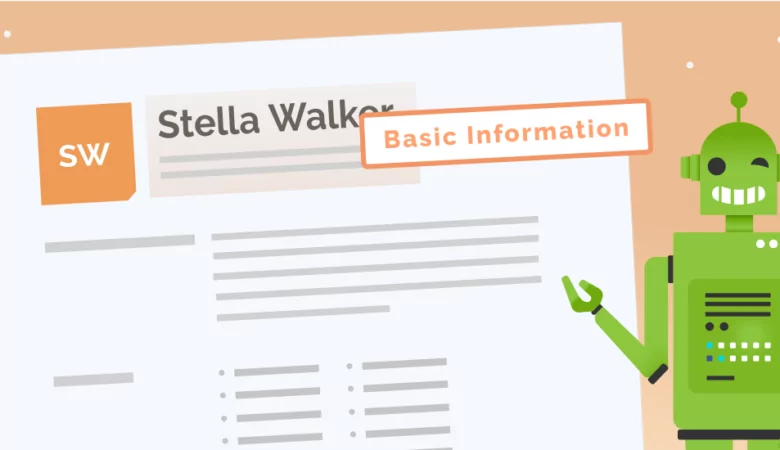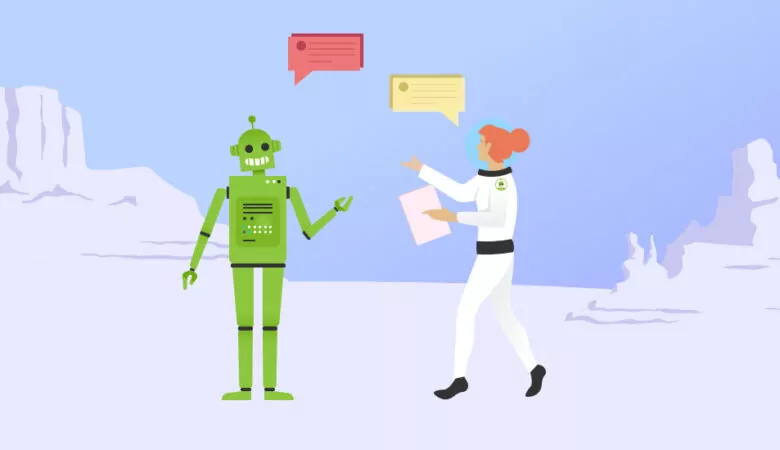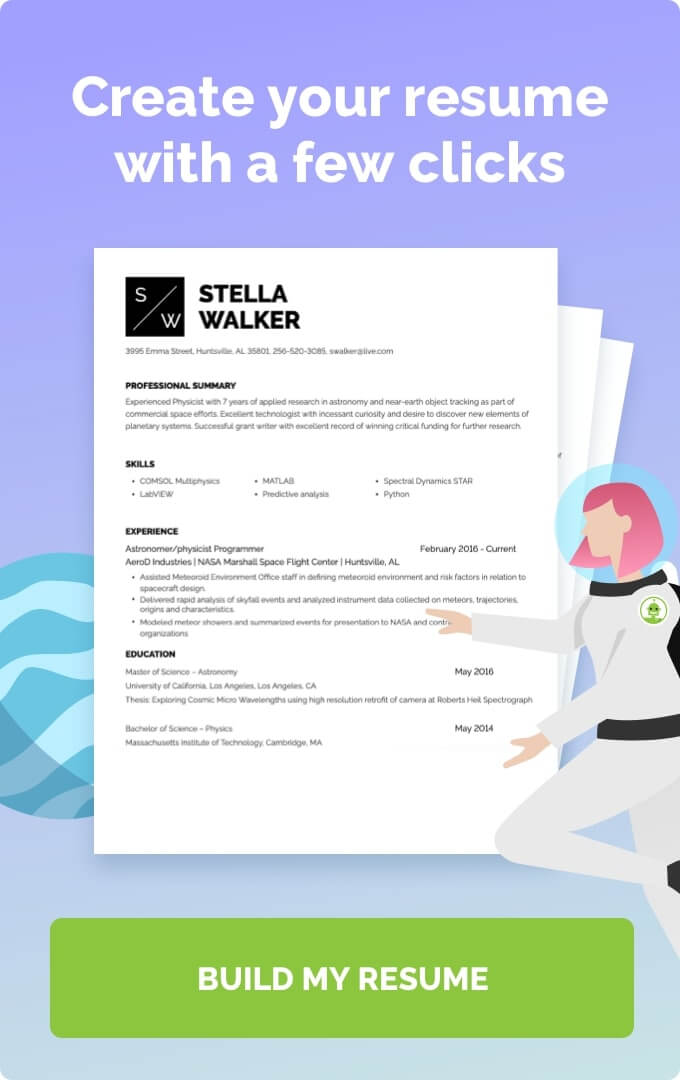Don’t have superhero powers to list on your resume? Job skills for your resume are the next best thing. In this article, you’ll learn everything you need to know about gaining job skills for your resume, including what a job skill is, why job skills matter, and how to properly list them on your resume.
Table of Contents
- – Introduction
- – What Is a Job Skill?
- – Why Do Job Skills for a Resume Matter?
- – How Can You Develop Job Skills?
- – Which Job Skills Belong on a Resume?
- – How Many Job Skills for a Resume?
- – How to Include Job Skills on Your Resume?
- – The Importance of Gaining Job Skills
- – Keep Gaining Job Skills for Your Resume
 Introduction
Introduction
Job skills help you demonstrate to a potential employer that you’ve got the capabilities needed to find success in the position offered. But how do you amass these all-important skills…and what skills should you really focus on developing? Let’s get started!
 What is a Job Skill?
What is a Job Skill?
A skill is the ability to do something proficiently or well. Job skills are the skills that you’ve developed that are specific to a particular job or sector of employment.
There are two key types of job skills: soft skills and hard skills.
Here’s the difference:
|
 Why Do Job Skills For A Resume Matter?
Why Do Job Skills For A Resume Matter?
Job skills are a pretty big deal.
But why?
According to expert Gilles Toussaint, a coach and consultant and the founder of GT impact, “Job skills matter because it is what defines how a person will thrive in his/her role, no matter the seniority or level or even the type of role.”
Whether you’re applying to be an employee in a traditional role or for a more modern freelance position, job skills prove to the hiring party that you’ll be able to do the job well.
 How Can You Develop Job Skills?
How Can You Develop Job Skills?
There’s not just one way to develop job skills. Rather, they’re often amassed over time and with experience.
Here are some common ways that people develop job skills:
- Past jobs:
Often, entry level positions in a field will help you develop skills that can help you move forward in your career. Need help writing a resume for your first job? Check out this post. - Schooling:
Whether it’s via university, community college, or through online programs, schooling can be an effective way to gain important job skills.
- Self-study:
Reading relevant books, listening to podcasts, and watching videos can be a great way to further refine your skills. - Trainings and certifications:
Targeted training or certifications can help you develop specific job skills. - Life experience:
Through time and experience, you’ll develop skills that can help you in your career. For instance, if you’re an entrepreneur who has operated a small business, chances are you’ve developed a variety of skills that could transfer to all sorts of jobs.
 Which Job Skills Belong On A Resume?
Which Job Skills Belong On A Resume?
It’s extremely important to curate your list of job skills for your resume. You want the job skills you list to all relate directly to the job you’re applying for.

For example, you might be highly skilled at Photoshop, but if you’re applying for a content writer job, this probably won’t impress the hiring manager.
Start by reviewing the job listing in question. Look for keywords or specific skills required, and prioritize listing the most relevant skills on your resume.
Make sure that the skills are backed up with examples of experience and results. “If I have to hire a senior sales manager, I don’t just want to see negotiation and sales skills on the resume,” says Toussaint. “I want to see numbers showing that he is good at sales and negotiation.”
 How Many Job Skills For A Resume?
How Many Job Skills For A Resume?
It can be tempting to list a ton of job skills to impress a potential employer. However, this can actually dilute the effectiveness of your list.
Remember: hiring professionals aren’t spending hours examining your resume. Per Toussaint, a hiring professional will likely spend “30 seconds reading a cover letter and 2-3 minutes reading a cv/resume.”
With this in mind, brevity is key. In most cases, a well-curated list of 5-10 skills should be quite sufficient.
One instance where you might want to include more skills? When you’re trying to make a vertical change. “If you are a project manager in an industry and want to change careers and become a product marketing manager in that industry,” says Toussaint, “it can be good to show some extra skills or examples that will prove how some of your current skills and experience can be transferred to the new role.”
 How To Include Job Skills On Your Resume?
How To Include Job Skills On Your Resume?
Where you list job skills on your resume will depend on what type of resume you choose.
There are three main types of resume formats: the chronological format, the functional format, and the combination format. Learn more about the three main resume formats here.
On a chronological resume, the primary emphasis is on work experience. In this format, job skills will be listed below work experience and above the education.
However, it’s a different case on a functional resume, which puts a lot more emphasis on skills. On this resume format, job skills would be listed above work experience.
On a combination resume, roughly equal emphasis is put on skills and work experience. Usually, skills are listed first and work experience is listed directly below with this resume format.
 The Importance Of Gaining Job Skills
The Importance Of Gaining Job Skills
How can gaining job skills improve your career? In a variety of ways.
Here are a few key ones:
Easier to Get a Job
The job market can be competitive. If you’re able to demonstrate that you’re proficient in the skills required for the job offered, you’re more likely to make the cut.
For example, say that a job listing specifically mentions that fluency in the Microsoft Office suite is required. If you’re able to say on your resume that you’re highly skilled in Word, PowerPoint, and Excel, it can give you an edge!
Easier to Get Promotions
 Not only can job skills get you in the door, but they can keep you on an upward trajectory in the workplace.
Not only can job skills get you in the door, but they can keep you on an upward trajectory in the workplace.
It’s not just about hard skills, though. Toussaint observes that in order to thrive, you need to be able to develop the perfect balance of hard and soft skills. For example, “a developer with outstanding coding hard skills who is asocial and cannot work on a team will have less chance to be promoted than someone with average coding skills but slightly above the norm soft skills.”
Improve Your Value as an Employee
Ever heard of career capital? Per Toussaint, this refers to “skills you have that are both rare and valuable and that can be used as leverage in defining your career.”
Job skills can help improve your career capital and value as an employee. But it’s important to focus on the skills that really set you apart.
According to Toussaint, there are two key ways to continue improving your career capital and value as an employee:
- Really become an expert.
For example, if you’re a PhD in Chemistry who has spent 15 years developing and working on lasers, the more skill you amass, the more desirable you may be for specific positions. - Develop a unique mix of skills.
Even if your skill levels are average, the right combination can help set you apart. Toussaint offers, “think about a marketing manager with a degree in marketing who learns how to code…he starts to be a very interesting product manager for software companies.”
 Keep Gaining Job Skills for Your Resume
Keep Gaining Job Skills for Your Resume
Job skills on your resume are an extremely important part of a successful job search. After all, nobody wants to hire an employee who doesn’t have the skills needed to perform the job at hand!
To stay competitive in the job market, it’s important to continue developing and refining your skill set. The benefits are many —not only will developing job skills expand the amount of opportunities available to you, but it can also help position you for promotions and continued career success.
What job skills have been most important in your career?








